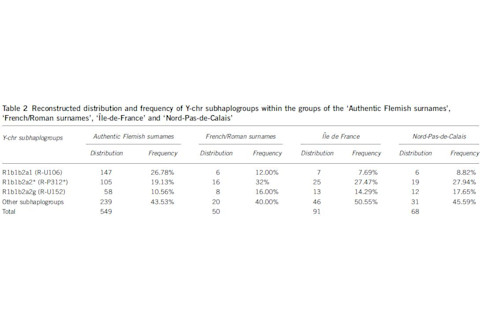The myth that 10 percent of children the product of 'non-paternity events' is rather persistent. I have no idea why, but I do know that even biologists accept it. But how we can we continue to accept this when surnames can provide population genetic information 400 years after the fact? The population of Belgium is famously divided between Latinate Walloons and Germanic Flemings. But is notable that a substantial number of Flemings carry surnames of clear Romance origin. This is in large part due to acculturation. Nevertheless, even 400 years after the largest of the migration and assimilation events males with Romance-origin surnames reflect their genetic background:

If non-paternity events occurred at a rate of 1 out of 10 the correlation between surnames and genetic lineage would have been decoupled long ago. These results have been confirmed in other societies. I predict that low non-paternity rates will also be confirmed in China; as that nation has a long history of surnames. Of course, one might posit a scenario where males who are the products of non-paternity events tend to be less fit than those who are not, so over the long term these estimates based on present day Y chromosomal lineages may not be appropriate reflective of the frequency of events at some point in the past.













